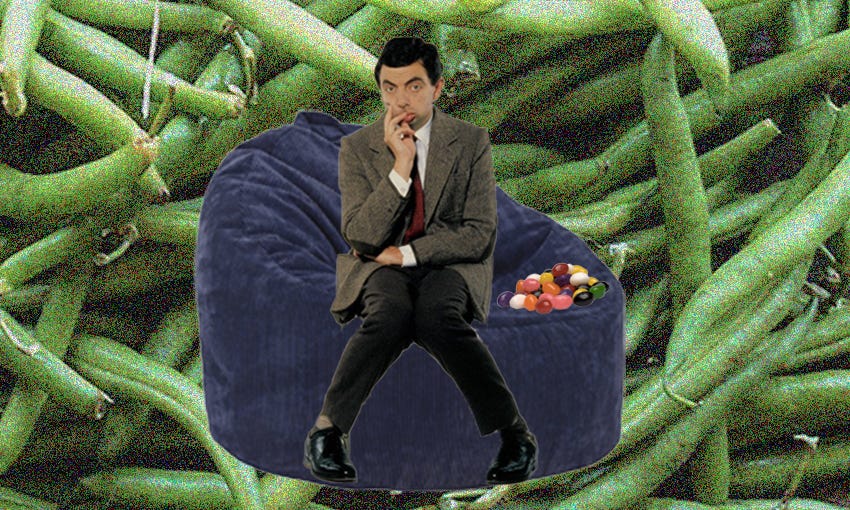Will lockdown lift this weekend?
All the signs suggest it will, but Cabinet's decision is no sure thing
Good morning and welcome to The Bulletin for Friday 5 March, by Alex Braae for The Spinoff. Presented in partnership with Z Energy.
In today’s edition: Cabinet to decide on lifting lockdown today, questions raised about the stability of the housing market, and people instinctively respond to tsunami threat after earthquake.
Image: Labour’s wider team of health ministers in cabinet (Getty Images)
A decision will be made today on whether or not Auckland will come out of level three, and the rest of the country out of level two on Sunday morning. That decision isn't a foregone conclusion, but at the moment a lightening of alert levels seems more likely. Our live updates reports we had another day with no new community cases yesterday, out of more than 14,000 processed tests. That includes most of the attendees of a Papatoetoe gym, which was a particularly feared site for transmission.
Speaking briefly last night about the cabinet meeting, associate health minister Peeni Henare said the signs of lockdown lifting were positive. But he told Checkpoint that "all the information" still had to be considered before the decision was made. The NZ Herald reported comments from Henare made earlier in the day, saying there was no chance of an early lift, even if it was another day of zero cases.
On Newstalk ZB this morning, the other associate health minister Ayesha Verrall ran a similar line. She said no new cases had come in overnight. She also defended the decision to go into lockdown in the first place, saying there was a "series of high risk exposures". She also noted that the spread of cases within households showed that the virus was dangerous, even if it doesn't appear to have spread further in the community.
There has been some suggestion that it was a mistake to put Auckland back into level three – for example, Newstalk ZB host Heather du Plessis-Allan editorialised on it last night. Because no new cases were announced in the days afterwards, the thinking goes the government might have waited and seen what happened. The counterpoint of course is that a few more days of movement may have resulted in a higher chance of spread, making the need to lock down self-fulfilling. Either way, we'll have to wait and see what lessons the government takes from the last few weeks of rapid alert level shifts.
Questions are being raised about the stability of the housing market, as a bedrock for the nation's financial assets. Reserve Bank governor Adrian Orr has told a Waikato University forum that he's concerned that risks are not being adequately priced into the soaring housing market, reports Stuff's Tom Pullar-Strecker. He says that worry should particularly be taken on board by people leveraging property to buy more of it. Over on Newsroom, Jono Milne has reported on fears around deferred and interest-only mortgages, which swelled massively in volume around the start of the pandemic last year. Note – that piece was written in advance of the Waikato Uni forum.
A big quake hit off the east coast of New Zealand overnight, but the threat of a tsunami has now passed. Radio NZ reports nearly 60,000 people reported feeling the 7.1 magnitude shake, which hit at 2.27am. People still took sensible precautions just in case though – from the RNZ live blog: "A reader, who messaged in to RNZ's Facebook page, says they're sitting up on a hill in Gisborne and it's packed. They say it's awesome to see people using their common sense and just moving to higher ground."
We’ve been doing our utmost to bring you all the coverage you need of the Covid-19 outbreaks and lockdowns. And we can’t do it without the generous support of our members. If you want to help out our news team with this and other big stories, please sign up here.
An interpreter who worked with New Zealand forces in Afghanistan is now facing death, after his residency application was declined, reports the NZ Herald's (paywalled) Kurt Baker. Nowroz Ali has recently faced death threats from the Taliban, and said if they are carried out the NZ government will have his blood on their hands. He assisted New Zealand's Provincial Reconstruction Team in Bamiyan province, and the work was unpaid.
The waka-jumping law could soon be cast overboard, with Labour considering their position on a members bill that would repeal it, reports Stuff's Henry Cooke. The legislation passed last term on the insistence of kingmaker Winston Peters, with some Labour figures expressing distaste, and the Greens expressing outright hostility (they voted for it anyway.) Now National MP Nick Smith is trying to take it out, and he's hopeful Labour will use their parliamentary majority in his favour.
A ridiculous morning of journalism for Stuff's Thomas Coughlan, who had two exceptional pieces on the Dominion Post's front page yesterday. The first piece looks at how money from a central government for a water infrastructure bailout fund has been cut back. And the second piece takes a deep dive through the government's plans around March and April 2020 for what might be necessary if the absolute worst-case Covid scenarios came to pass. Notably, both stories involved use of the Official Information Act, to bring the documents to light.
A story about a cutting-edge supermarket promotion that has really left a mark on some consumers: Radio NZ's Hamish Cardwell has reported on the sharp uptick in injuries sustained by aspiring chefs using Smeg Knives – given away over the last few months by New World. More experienced chefs suggest that part of the problem is people not having good technique when using knives, or by not being used to having properly sharp blades.
Got some feedback about The Bulletin, or anything in the news?
Drop us a line at thebulletin@thespinoff.co.nz
Right now on The Spinoff: Charlotte Muru-Lanning reports on a MAFS contestant who was booted for outstanding domestic violence charges, and is now facing opposition to his plans to open a central Auckland bar. Adam Currie argues that the Climate Change Commission's targets are too far off and lack ambition. Gareth Shute looks at the feasibility of current targets around electric vehicles. Business is Boring spoke to a local entrepreneur about inventing the sewer-safe wet wipe alternative BDÉT. Briar Grace Smith writes about what her library means to her, after a lifetime spent in them. Justin Latif meets the South Auckland women behind a healthy food revolution. Sam Brooks asks arts practitioners how the latest lockdowns have disrupted their work. And Alice Webb-Liddall ranks every type of bean she can think of.
For a feature today, a piece about the low-waged workers who are putting themselves on the line to stop Covid getting into the country. The NZ Herald's Michael Neilson has spoken to several people working on the frontlines, as cleaners and hotel workers, about what their lives are like. Many are currently on minimum wage – in my opinion you could triple that and it still wouldn't match up to the value they're giving the nation. Here's an excerpt:
She is regularly tested for Covid-19 and each night when she returns home she puts her clothes in a plastic bag, washing them separately. She showers before seeing her three children who live in the same property, but in a separate building to reduce the risk of contamination. But despite all the caution, each day she goes to work is another filled with fear and anxiety.
And despite all of this extra burden, the cleaner of nearly 20 years' experience earns barely more than the minimum wage of $18.90. In fact, she earns less than when the pandemic began - her hours have been cut from 40 to 30 a week, meaning her pay cheque hardly covers the mortgage. She has a 10-year-old daughter at home, and two adult children who support with mortgage repayments and household bills.
"In the long run I am scared we might lose the house, lose the ability to live in the area with family nearby. I want my children, when I die, to have somewhere to stay."
You may have seen the video of some guy running out into the middle of a racetrack, and coming close to being hit by the horses. As Checkpoint reports, he will face a life ban from every track in the country. The piece points out that his disruptive behaviour started before the actual sprint onto the field. He will also have to do some community service.
That's it for The Bulletin. If you want to support the work we do at The Spinoff, please check out our membership programme







